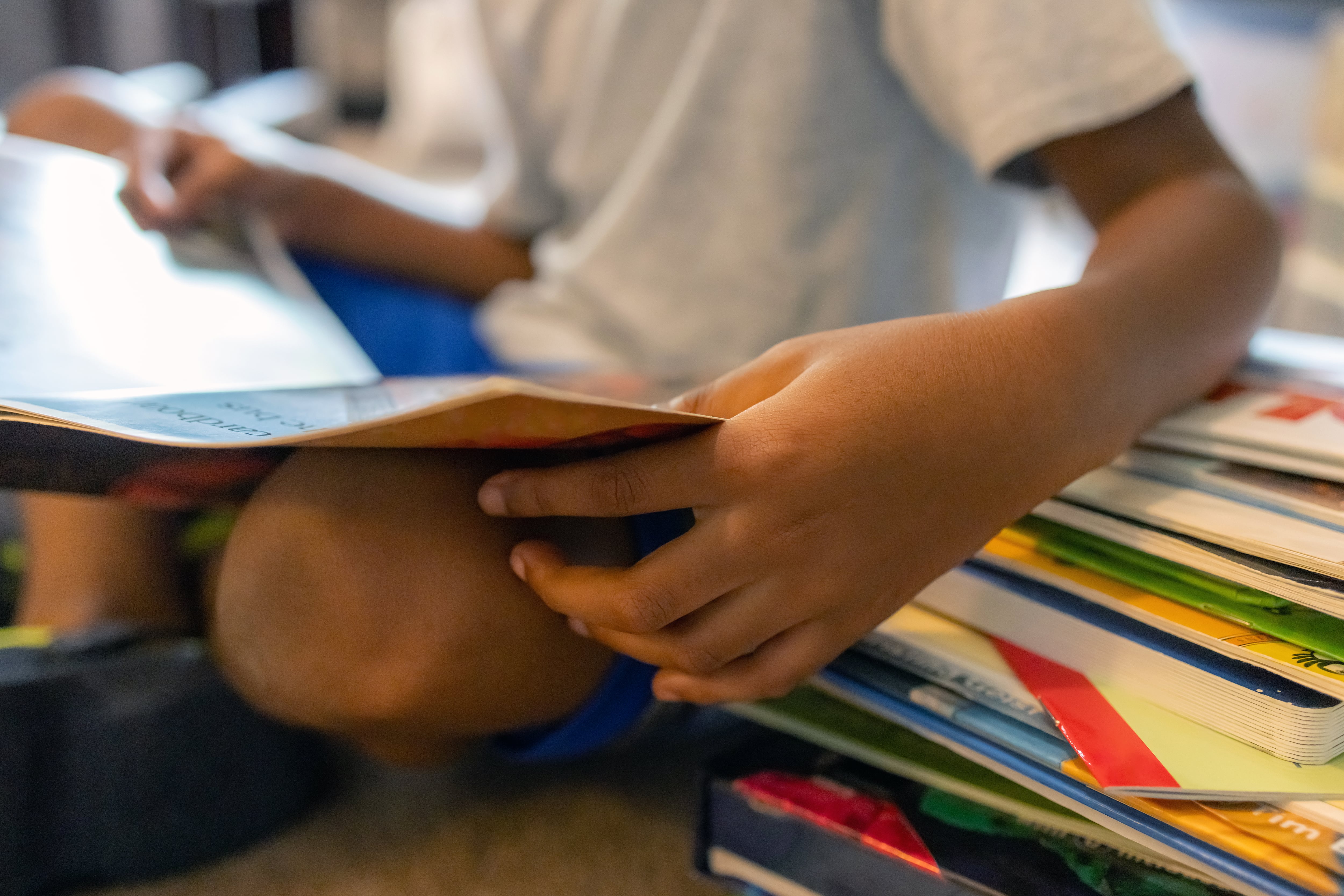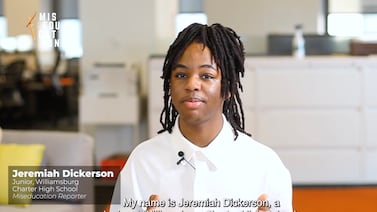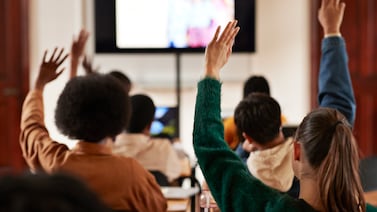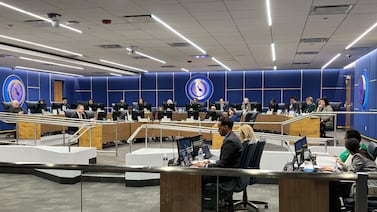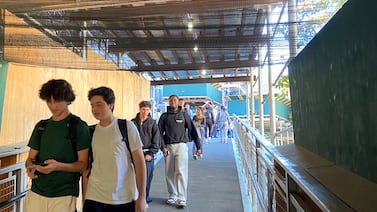Sign up for Chalkbeat New York’s free daily newsletter to keep up with NYC’s public schools.
City officials want to close a shrinking Brooklyn school, replacing it with a new one designed to help struggling readers, modeled on an innovative program that launched last year in the Bronx.
The Education Department plans to shutter M.S. 394 in Crown Heights at the end of this school year, citing dwindling enrollment for the pre-K-8 school and low academic performance. City officials hope the building will become the home of the Central Brooklyn Literacy Academy, which would be the second city-operated public school exclusively devoted to students with dyslexia and other reading challenges.
M.S. 394 has shrunk by 36% over the last five years and now serves about 200 children, according to the closure proposal. Despite efforts to improve instruction and school culture, just 21% of students were considered proficient in reading last year and 25% in math. Citywide, about 53% of students were proficient in math and 49% were in reading.
Declining enrollment has “impacted the school’s ability to provide a robust learning environment for students,” education officials wrote, as funding is tied directly to student headcount.
The plan represents the Education Department’s latest effort to address two pressing problems: A growing number of unsustainably small schools and longstanding gaps in support for struggling readers. As enrollment declines have accelerated in the wake of the pandemic, the number of tiny schools has ballooned. There were about 190 schools with fewer than 200 students last year, more than double the number in 2016, according to a Chalkbeat analysis.
The Education department has quietly ramped up school mergers, noting they are often less disruptive than shutting schools, however closures are beginning to pop up as well. If the plan for M.S.394 is approved on Dec. 18 by the city’s Panel for Educational Policy, it would be the second school closure in the past six years. Officials have also floated plans to close a separate tiny Brooklyn elementary school, though the department has not formally proposed it to the panel.
Despite the growing number of tiny schools, officials have continued opening new campuses with distinctive academic models, part of an effort to keep families in the system even as the additional programs may deepen enrollment challenges on other campuses. City officials previously said they planned to offer specialized reading instruction in at least one school in every borough, though a spokesperson did not say if that was still a goal.
Erika Kendall, president of the District 17 Community Education Council which includes M.S. 394, called the city’s proposal “bittersweet.”
“It’s always unfortunate when a school has to close,” she said.
But Kendall added stronger literacy programs are sorely needed in the district, and she is also excited about a new adult education program the city plans to open in the building. “My goal is to make sure there’s no vacuum of resources, options, and programs in that space.”
Addressing literacy challenges has been the most significant education priority under Mayor Eric Adams, and city officials have begun overhauling reading instruction across the city. Families have pushed for years to open public schools geared toward students with dyslexia to avoid the complex legal process of forcing the city to pay for more specialized private school instruction — a ballooning cost in the city’s budget.
The Central Brooklyn Literacy Academy would target struggling readers
A group of parent advocates collaborated with the Education Department to open the South Bronx Literacy Academy in September 2023, the first city-run public school devoted to struggling readers. The Brooklyn outpost would be in a similar mold, offering small-group instruction and classes co-taught by educators who receive rigorous training in reading instruction and reaching students who have language-based learning disabilities, officials said.
The Central Brooklyn Literacy Academy would focus on “using a variety of media including read-aloud, discussion, film, audiobooks, and adaptive technology to present culturally relevant, grade level, and highly engaging content in a hands-on, accessible way,” according to the city’s proposal. The school would have a dedicated school psychologist, in addition to speech and occupational therapists.
If approved, the school will begin serving students in the second and third grades next year, eventually growing to serve grades 2-8 and reaching up to 380 students, according to the city’s proposal.
Students must “either present formal documentation of dyslexia or demonstrate a pattern of reading challenges through an assessment process” conducted by the city to be eligible for admission. The school would not be zoned and would first prioritize students in District 17 followed by students in Districts 13, 16, 23, and 32.
Though the new Brooklyn school and its Bronx counterpart can only serve a tiny fraction of the city’s struggling readers even once they’ve fully expanded, supporters hope that these programs serve as a laboratory for teaching struggling readers that other schools draw on for best practices.
“We’ve had tremendous success at South Bronx Literacy Academy, and we know that it’s one school,” said Emily Hellstrom, the parent of a child with dyslexia who helped launch the Literacy Academy Collective, a nonprofit that has partnered with the Education Department to open schools for children with reading challenges.
Hellstrom is hopeful that the literacy academies can make an outsized impact and potentially grow into a network of four to six campuses.
“These schools can serve as sort of beacons and lighthouses radiating out into districts and boroughs,” she said.
Alex Zimmerman is a reporter for Chalkbeat New York, covering NYC public schools. Contact Alex at azimmerman@chalkbeat.org.

